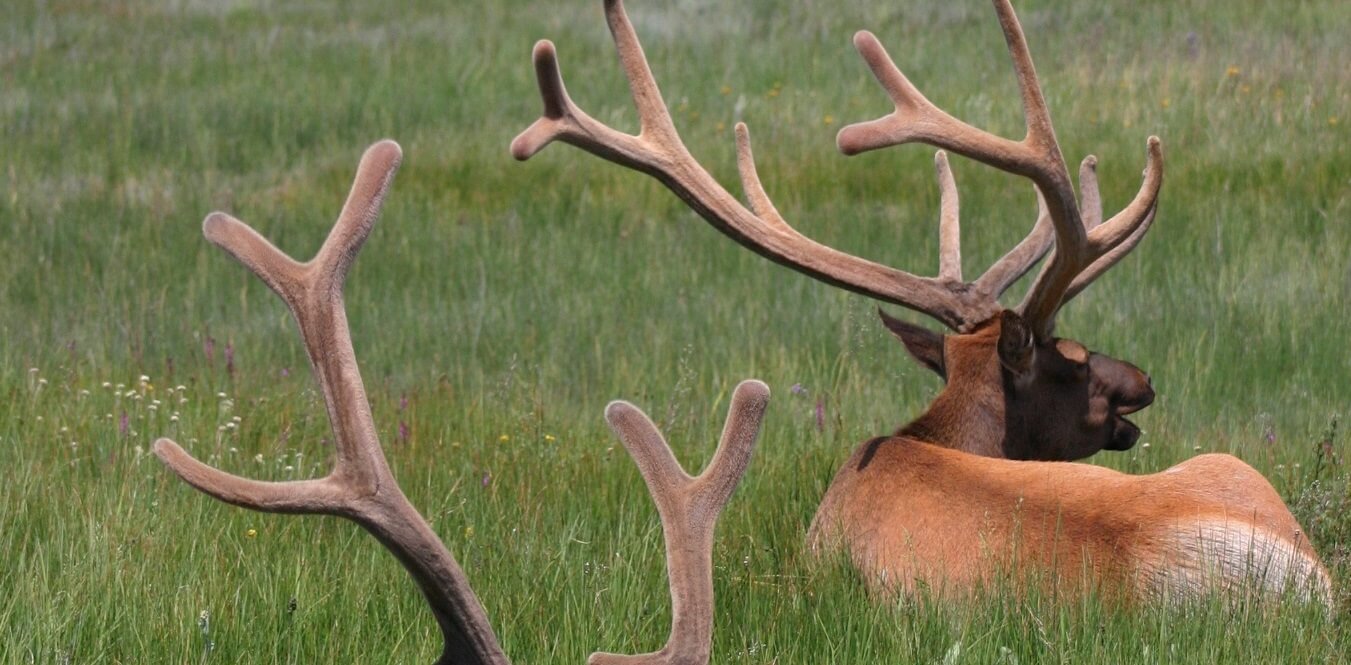Research is scarce when it comes to elk and sweating. At Bugle we often run our more perplexing questions of elk biology past cervid expert
Val Geist, author of Elk Country and a dozen other books on North American ungulates and professor emeritus from the University of Calgary. It’s a rare day that we stump him.
“Your question is a damn good one, because I haven’t heard it asked in 50 years,” Geist said.
Turns out elk sweat and pant, but the latter is a last-ditch effort to cool off. It’s their ability to sweat buckets that helps make elk supremely adaptable. Wild elk range from the Yukon to Mexico and can withstand temperatures from at least 40 below to 115 above. Tule Elk in central California rut in July and August when the mercury routinely hits triple digits. Sweat is key.
Wildlife biologists Katherine Parker and Charles Robbins explored this question in detail in a study published in 1984 in the Canadian Journal of Zoology titled, “Thermoregulation in Mule Deer and Elk.”
Parker wrote that she parted the hairs by hand on the backs of captive elk and deer during their Washingon State University study, and recalls the
ease with which the elk’s hair divided to reveal an extensive sweat gland system and ample evidence of sweat on the surface of their skin.
An elk’s summer coat is made up of short, stiff and sparsely distributed hairs with little if any underfur. These hairs are five times thinner—and have far fewer honeycombed air pockets—than those that make an elk’s winter coat so warm and buoyant. No fly fisherman ties an Elk Hair Caddis with summer elk hair.
This sparse coat is what gives elk a glossy appearance in summer compared to their duller winter coats. It also acts like an elk’s personal AC
unit, allowing air to circulate readily to the skin and carry away water.
“Cutaneous evaporation (aka sweating) in summer was significantly greater in elk than mule deer, which used panting as a primary means of heat
dissipation in hot environments,” Parker and Robbins wrote in their study.
Elk NetworkDo Elk Sweat or Pant?
Conservation | January 17, 2018

Latest Content
Washington’s Wildlife, Habitat Get $4.3 Million Boost
MISSOULA, Mont. — The Rocky Mountain Elk Foundation and its partners allocated $4,345,186 for a series of projects to improve habitat for elk, mule and [...]
RMEF Weighs In, Colorado Unanimously Adopts Mountain Lion Plan
Ten days after Coloradans decisively rejected a ballot initiative that sought to ban mountain lion hunting, the Colorado Parks and Wildlife (CPW) Commission unanimously adopted [...]
RMEF Among Group Protesting Recreational Shooting Ban at Utah National Monument
The Rocky Mountain Elk Foundation joined a collaborative group of nine other conservation and sportsmen organizations protesting the closure of recreational shooting within Bears Ear [...]